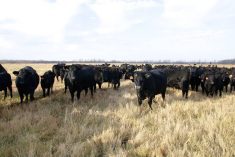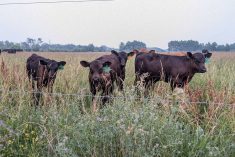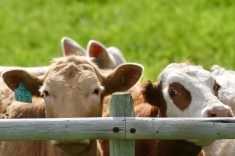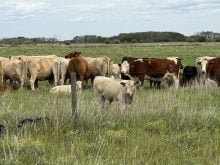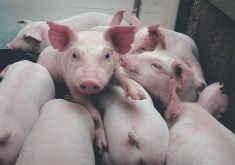SALMON ARM, B.C. – Mark Nairn took over as British Columbia Cattlemen’s Association president during the worst livestock crisis in history.
At the end of his two-year term, the cow-calf producer from Riske Creek still sees economic and environmental pressures leaving ranchers struggling to survive in a province where the urban public barely knows they exist.
Nairn and his wife, Sally, were involved with Overwaitea Foods promotions where the grocer offers a 100 percent Canadian beef program. Meeting with urban customers was an eye opener.
Read Also
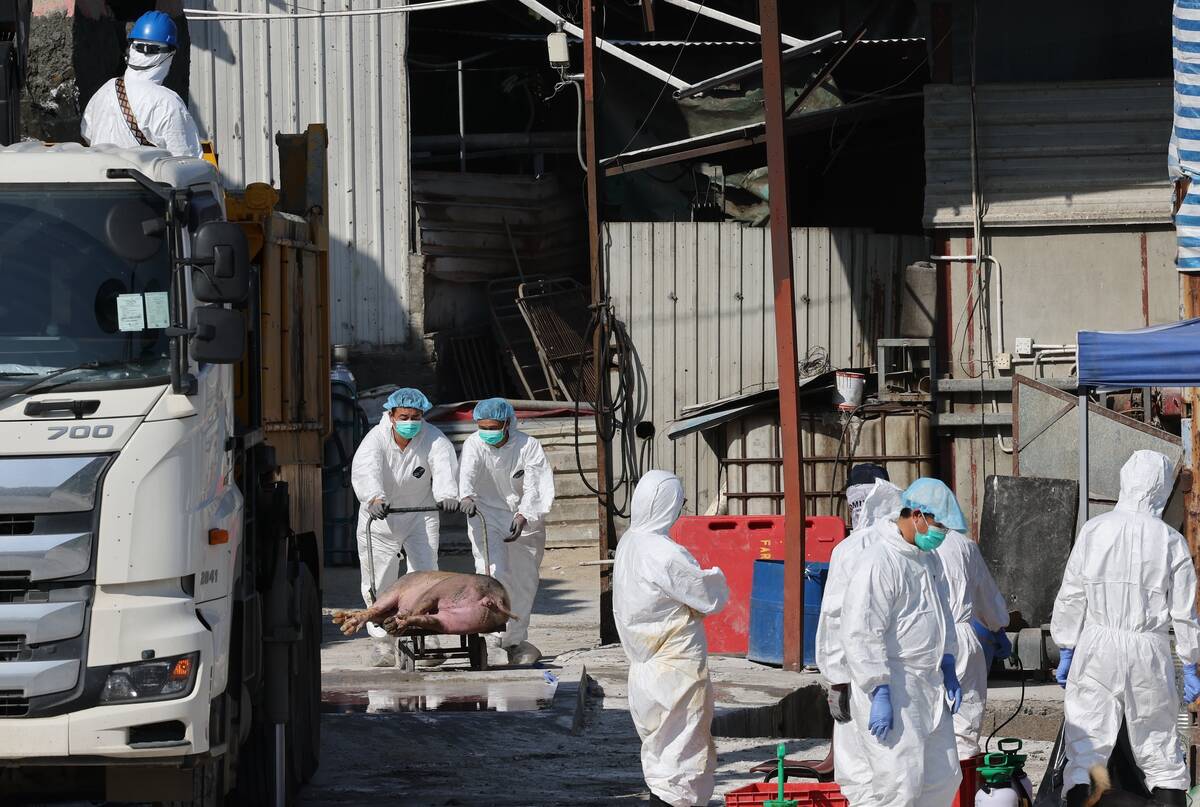
Mixed results on new African swine fever vaccine
The new African swine fever vaccine still has issues, but also gave researchers insight into how virus strain impacts protection against the deadly pig disease.
“They were somewhat surprised that we had a cattle industry. They tend to think our cattle industry is in Alberta,” he said in an interview at the BCCA annual meeting.
Getting messages to the membership has been equally frustrating in a large province of diverse interests and major geographical barriers.
The best solution for Nairn has been to meet members face to face.
“Communication is probably one of the biggest challenges for the leadership,” he said.
“Unless you actually go and talk to everybody, it is very hard to get them up to date on the issues, and there is a ton of information out there but it is very difficult to get them to access that.”
During his term, Nairn spent up to 20 days a month away from home tending to association business, sitting on the Canadian Cattlemen’s Association board and working as vice-chair for the B.C. Agriculture Council, an umbrella group.
That dedication gave him a clear picture of the struggles facing producers.
The biggest issue is viability and profitability for ranchers who face diving commodity prices, inadequate farm support and outside pressures from urban development.
“If we can’t turn a profit, we can’t survive,” he said.
Programs like Canadian Agricultural Income Stabilization did not help, although BSE ad hoc programs probably saved some operations.
Another major worry for B.C. is secure access to land and water. Most ranchers rely on crown grazing land but with multiple users and security of tenure up for grabs, business plans are tenuous.
Nairn sees a widening rural and urban gap in B.C. There are about three million people living in the Lower Mainland consisting of a major immigrant base and people several generations removed from the farm.
Environmental demands further complicate life. It is estimated deer and elk consume about 45 percent of the forage on grazing land and there is no compensation for losses.
“We are struggling to survive and here we are feeding what we call the Queen’s cows,” he said.
“Does society care enough about food production to do something about that or are we going to have to consolidate and have large factory farms and hobby farms? There is not a whole lot of recognition in our communities that we provide food,” he said.
Another challenge for the BCCA leaders is helping ordinary producers see where they fit on the global food production stage.
One issue is mandatory identification and traceability, which producers criticize as labour intensive and expensive.
“We need to remind people we are producing food, not just cattle. Traceability is becoming increasingly more important to us, not only in our foreign markets but our domestic markets as well. While these demands are being made of us, if we don’t do it, we could lose our market share,” Nairn said.
When he turns the issues over to incoming president Ed Salle, Nairn has other major commitments in the world of food politics.
He is involved in the Premier’s Act Now initiative aimed at having a healthy population in time for the 2010 Winter Olympics. The agricultural council’s role to offer forums across the province starting this spring, talking about the importance of good nutrition and exercise.




